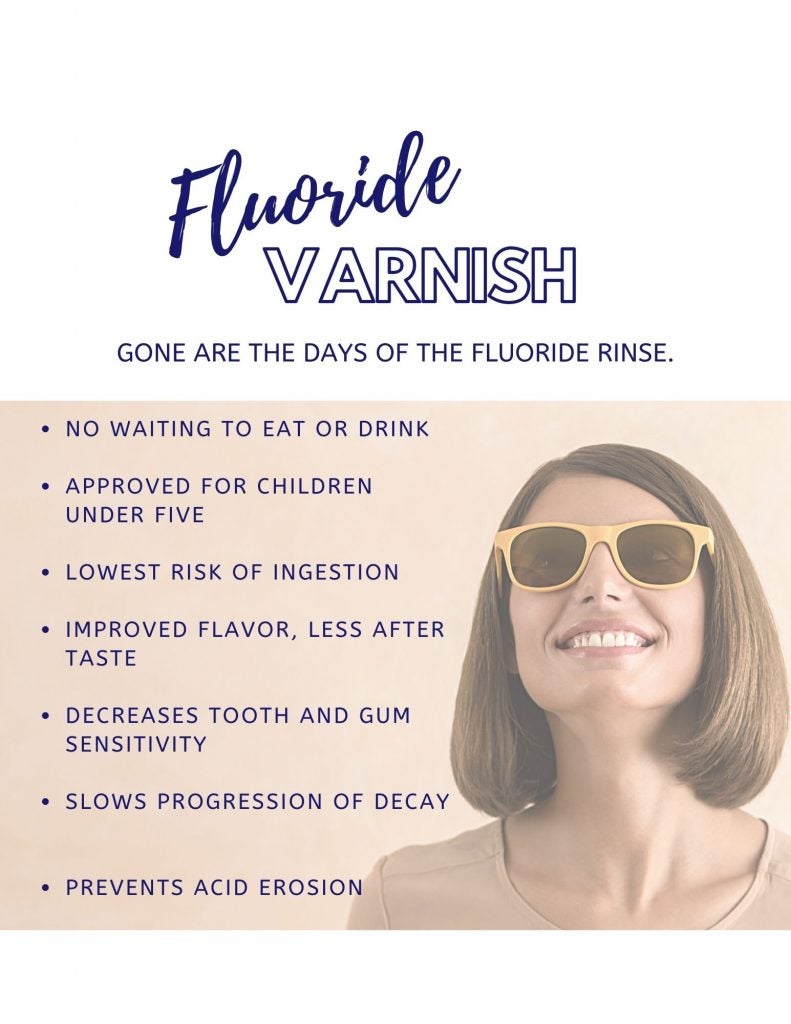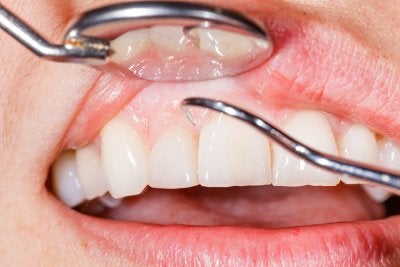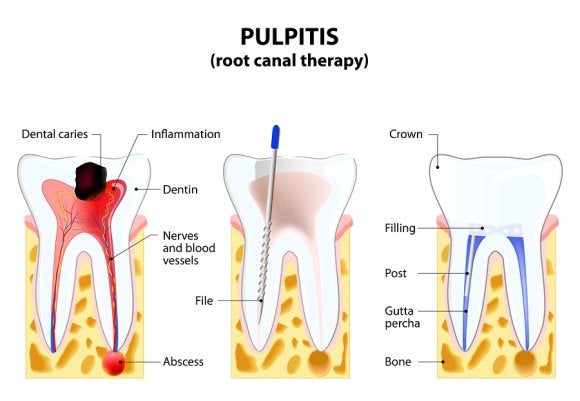-
Custom Night Guards
The Importance of Custom Night Guards for Protecting Your Smile
Do you ever wake up with sore jaw muscles, headaches, or sensitive teeth? If so, you might be grinding or clenching your teeth at night – a condition called bruxism. Left untreated, bruxism can lead to worn-down teeth, fractures, gum recession, and even damage to dental restorations like crowns or fillings. One of the best ways to protect your smile is with a custom night guard made by your dentist.
Why a Custom Night Guard?
You can find over-the-counter “boil-and-bite” mouthguards at the store, but they don’t compare to a professionally made night guard. Here’s why:
-Perfect Fit – A custom guard is designed from an impression or scan of your teeth, so it’s more comfortable and stays in place while you sleep.
-Better Protection – Store-bought guards are often bulky and uneven, which can put strain on your jaw joints. A custom guard distributes pressure evenly and protects both your teeth and jaw.
-Durability – Dental-grade materials used in custom night guards are stronger and longer lasting than store-bought versions.
-Tailored to You – Your dentist can adjust the thickness and design depending on how severe your grinding is.Health Benefits of Wearing a Night Guard
-Prevents Tooth Damage – Guards stop enamel from wearing down, reducing the risk of chips, cracks, or sensitivity.
-Reduces Jaw Pain & Headaches – Relieves stress on your jaw muscles and temporomandibular joint (TMJ).
-Protects Dental Work – Helps prevent expensive repairs to crowns, fillings, and veneers.
-Improves Sleep Quality – Many patients find they sleep more comfortably without clenching or grinding.Signs You May Need a Night Guard
-Frequent headaches or jaw pain in the morning
-Worn or flattened tooth surfaces
-Chipped teeth without a clear cause
-Soreness in your face or temples
-Your partner notices grinding sounds at nightInvest in Your Smile
A custom night guard is an investment in your oral health — one that can save you from discomfort, costly dental treatments, and long-term damage. If you suspect you might be grinding your teeth at night, talk to your dentist. Together, you can protect your smile and your overall well-being. -
Let’s Take Prevention to the Next Level

-
Helping Your Kids Avoid Cavities
As a parent, it is important to teach your children proper oral health habits and hygiene. While cavities may be an unavoidable problem for some families, there are steps that you can take to help prevent a dental cavity in your child’s smile. A kid’s dentist in Bel Air will be able to gently clean your child’s teeth and check for the early signs of decay. Your pediatric dentist can also instruct your son or daughter on proper brushing and flossing techniques. To help you avoid the stress of a dental cavity, here is a look at some tips for helping your kids avoid tooth decay.

Brush and Floss Regularly
One of the most effective measures for preventing tooth decay is to encourage your children to brush and floss their teeth regularly. For optimum oral health, your child will need to brush and floss at least twice a day. Young children should be supervised throughout the brushing process. To help prevent cavities, you can also make sure that your kids use toothpaste that contains fluoride.
Eat Nutritious Food
Your child’s diet has a strong correlation with his or her oral health. Very sugary foods, such as candy or soft drinks, will cause harmful bacteria and plaque to build up in your child’s mouth. Over time, a sugar filled diet can cause cavities and other oral health issues. To ensure the proper oral health of your child, you will want to encourage him or her to eat a healthy diet that is filled with fruits, vegetables, and whole grains.
Schedule Dental Visits
Regular trips to the dentist will keep your child’s teeth in great condition. Children of all ages should visit the dentist at least once every six months. The twice yearly dental exam will allow your kids dentist to perform a thorough cleaning and check for any early signs of decay. During your regularly scheduled dentist appointments, your dentist can also make sure that your child is brushing and flossing correctly.
-
Talking to Your Dentist About Gum Disease Treatment
Gum disease, also known as periodontal disease, is one of the most common causes of tooth loss. Proper dental care can often prevent gum disease, but if you already have it, you may need specialized dental care in a dental office in Bel Air, MD. Undergoing an intensive dental cleaning may reverse the disease, provided you follow your dentist’s recommendations for at-home dental care .

Discuss Your Medical History
When you arrive at the dental office, you can expect to be asked about your medical history. You might consider asking your dentist how he or she thinks you developed gum disease. Some common risk factors of periodontal disease include diabetes, poor nutrition, poor oral care habits, tobacco use, and decreased immune function. Not all of these risk factors can be eliminated, but lifestyle changes can improve others. Consider asking your dentist to evaluate your typical brushing and flossing techniques, and give you some pointers if your routine could use improvement.
Learn About the Recommended Treatment
The treatment options your dentist recommends will depend on how far the disease has progressed. The early stage of gum disease is gingivitis. If you have gingivitis, your dentist might recommend one or two professional dental cleanings. You’ll also need a follow-up visit to make sure your gums are healing. If your dentist recommends this method, be sure to ask how often you should schedule routine dentist visits in the future. If your periodontal disease is more advanced, your dentist may recommend scaling and root planing. This is a deep cleaning method that scrapes away tartar, plaque, and toxins from below and above the gum line. The root surfaces are then smoothed. If your dentist recommends this option, consider asking how else you can support your oral health. Your dentist may prescribe medications, recommend medicated mouthwash, or advise you to switch to an electric toothbrush.
Ask About Maintenance
Whichever treatment option your dentist recommends, be sure to ask him or her about the maintenance phase. Maintaining your oral health is crucial to prevent a recurrence of gum disease. Your dentist may recommend that you return to routine dental cleanings four times per year instead of the usual two visits. During these visits, the dentist will check your gums to make sure they are still healthy.
-
How to Choose Which Cosmetic Dentistry Treatment Is Right for You
Your smile says a lot about your personality. Unfortunately, many people feel as though they must cover up their smiles because of concerns about the appearance of their teeth. If you’re dissatisfied with your smile, it may be time to make an appointment at a cosmetic dentistry office in Bel Air, MD. There are many cosmetic dentistry options that can brighten your smile, resolve chips and cracks, and even address misshapen teeth and unsightly gaps.

Identify your concerns and goals for your smile.
Consider making a list of all of the things that bother you about your smile. You might be upset that your teeth look dingy or downright discolored, or you may be concerned about that gap between your front teeth. Consider which changes to your smile would give you a boost of self-confidence.
Schedule a consultation with a cosmetic dentist.
Once you have identified the problem areas that you would like to resolve, it’s time to schedule a consultation with a cosmetic dentistry provider. When you arrive at the clinic, be sure to share your full medical history, including any medications you’re taking. This is particularly important if you’re concerned about discoloration; certain medications are a common cause of tooth discoloration. During your visit, your dentist will carefully examine your teeth, including the way the upper and lower jaws fit together. He or she will ask you about your goals for your pearly whites and then design a customized treatment plan that’s right for you.
Learn about your cosmetic dentistry options.
Many people can achieve incredible results with tooth whitening alone. In office whitening procedures are particularly effective. The BriteSmile method is particularly effective. It involves applying specialized teeth whitening gel to your teeth. Then, the BriteSmile blue light is applied to activate the gel. During your treatment, you can relax comfortably while your teeth are undergoing a much-needed makeover. If you have deeper tooth discoloration, such as discoloration caused by medications, then you might need a more intensive treatment. Your dentist might recommend Lumineers, which are porcelain veneers that are bonded to the front sides of your teeth. Lumineers are an effective way to instantly camouflage a wide range of dental imperfections-from discoloration and chips to gaps and misshapen teeth. These are just a couple of the cosmetic dentistry options that may be available to you. Your dentist can help you decide which one is right for you.
-
Tips for Caring for Your Sensitive Teeth
If you have sensitive teeth, you may find it uncomfortable to consume very hot or cold beverages and foods. Since tooth sensitivity can indicate the wearing down of your enamel or the recession of your gum line, it’s best to visit a dental office in Bel Air, MD, for a dental cleaning and exam. Proper dental care can resolve your tooth sensitivity by addressing the underlying problem. In the meantime, you can follow the tips explained in this video.
This video offers some at-home dental care guidance for sensitive teeth. It recommends brushing your teeth with a soft-bristled toothbrush and desensitizing toothpaste that contains fluoride. You can protect the enamel on your teeth by avoiding soda and acidic foods, and by waiting 30 minutes after eating before brushing your teeth.
-
What Happens During a Root Canal?
If you experience tooth pain and visit an emergency dentist near Bel Air, MD, it’s possible that your dentist will determine that the nerve of your tooth has been damaged by an infection or decay. In these situations, a root canal is indicated. A root canal can save your natural tooth and prevent the need for a tooth extraction. To perform this common dental procedure, your dentist will thoroughly numb the area and create an access opening on the top of the affected tooth. Then, the dentist inserts a series of root canal files into the opening to remove the infected pulp and other damaged tissues. Other dental instruments may be needed to address tooth decay, if this problem is also present.
Once all of the damaged material has been removed from the tooth, the dentist seals the hole with a temporary or permanent filling. In the same office visit, we will permanently seal the tooth if you received a temporary filling. Your dentist will also permanently affix a dental crown on top of the tooth. The dental crown looks just like a natural tooth; it protects the natural tooth from trauma.

-
Aging and Oral Health
Good dental care is important at every age. As you grow older, your dentist might alert you to some problems that you may be at risk of. Aging can bring about changes in the dentin just underneath the enamel. This can cause your teeth to appear dull or darker. A quick trip to a dental clinic near Bel Air, MD , can easily correct this problem. Consider talking to your dentist about teeth whitening or porcelain veneers.
Watch this brief video for some helpful tips on taking good care of your teeth as you enjoy your golden years. This dentist recommends chewing sugarless gum to stimulate the release of saliva if you experience dry mouth due to certain medications. She also recommends making regular dental check-ups, brushing and flossing thoroughly every day, and limiting snacking between meals.
-
The Uses of Dental Crowns
Do you need dental crowns in Bel Air, MD ? Dental crowns help restore teeth that cannot undergo other common forms of dental work, such as fillings. Crowns act as a protective layer around the tooth, strengthening its structure and upholding its original form. There are several different types of crowns available, including those made from a tooth-colored porcelain material. Talk to your dentist about getting a customized porcelain crown made for your tooth if you dislike the look of gold crowns.
Your dentist may recommend that you get a dental crown for several reasons. Typically, dental crowns are recommended for those who have a decayed tooth with fragmented or large fillings. Dental crowns are also used on teeth that have root canals. Finally, customized porcelain dental crowns may be used for cosmetic purposes.
The procedure for getting a dental crown will usually involve two appointments at a dental clinic. The first appointment centers around making accurate impressions of your tooth in order to create a custom crown that will fit perfectly over it. At your second appointment, your dentist will mount the permanent crown onto your tooth.

-
How Tooth Whitening Works
Teeth whitening is one of the most in-demand procedures for cosmetic dentistry in Bel Air, MD . Watch this video to learn more about how professional teeth whitening can help you achieve a beautiful smile.
Teeth whitening uses the latest technology in cosmetic dentistry to deliver a white smile in just one visit to a dentist. At-home teeth whitening kits contain only low levels of bleach. Dentists are able to use high-powered bleach, which means you can brighten your teeth by many shades after one pain-free procedure. The teeth can become dark or stained for many reasons, including smoking cigarettes, drinking coffee, taking certain medications, or having certain dental procedures. If you have always wanted a brighter smile, ask your dentist if professional teeth whitening may be right for you.
categories
- Uncategorized
- General Dentistry
- Toothache
- Emergency Dentistry
- Family Dentistry
- Receding Gums
- Cosmetic Dentistry
- Veneers
- Gum Disease
- Gingivitis
- Dental Crowns
- Orthodontics
- Dental Implants
- Root Canal
- Wisdom Teeth
- Teeth Whitening
- Your Smile
- Composite Fillings
- Lumineers
- Dentures
- Invisalign
- BrightSmile
- Dental Bridge
- Abscessed Tooth
- Sealants
